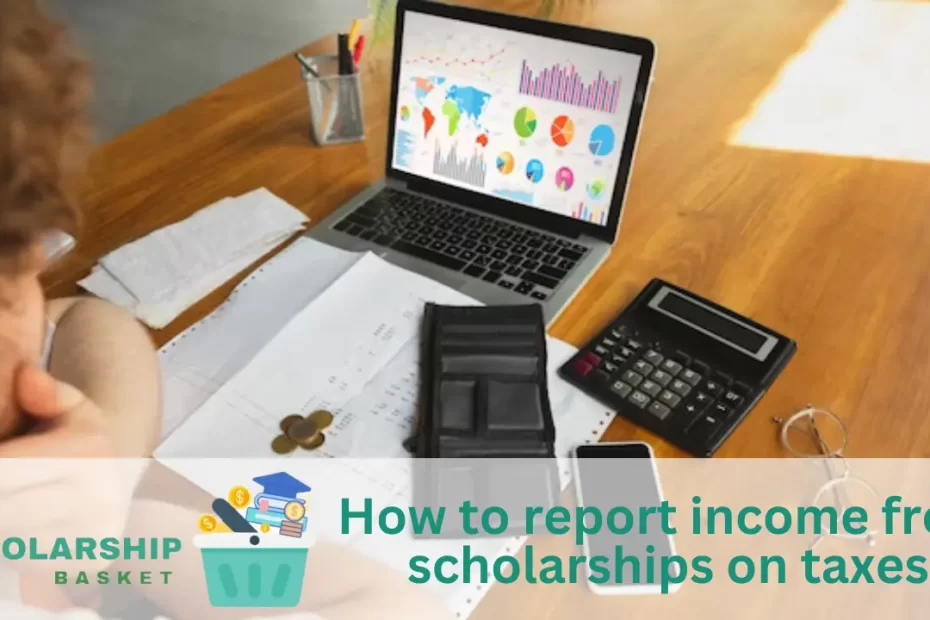Scholarships are financial aid that provide financial assistance to students pursuing their education. Generally, scholarship payment received by a candidate for a degree is non-taxable, if the income is used for the qualified expenses. The list of qualified expenses includes tuition, fees, books, and materials required for the course. There are some situations available in which the income from scholarships is required to be reported on taxes. The reporting of income on the right form is a very crucial step because the taxes must comply with the tax laws. If the tax laws are not followed by the individuals, they are liable to pay unnecessary penalties. So, here we will discuss the forms, conditions, and procedure of reporting scholarship income on taxes.
How to Know that a Scholarship is Taxable?
The income from scholarships is determined under three categories of taxability. The three categories are as follows.
- Qualified Expenses: The items such as tuition, fees, books, and other required supplies are not considered taxable and come under the category of qualified expenses. The expenses that are directly related to the degree at any eligible institution are covered under scholarship money.
- Non-qualified Expenses: The expenses that are related to the room and board, medical expenses, transportation, and other living expenses are considered taxable as they are not directly related to education and are known as non-qualified expenses.
- Other Taxable Scholarships: The scholarships that cover the cost of tuition, fees, room and board, living expenses, stipends, and other non-educational costs are considered taxable because they include both direct and indirect expenses.
So, these are the three categories on which the scholarship income is evaluated between taxable and non-taxable.
How to Report Income from Scholarships on Taxes?
To report income from scholarships on taxes, various criteria and forms are available that students have to understand because the filing criteria depend upon the norms and they have to file the taxes on these forms. The tax forms are as follows.
- Form 1040: Form 1040 is the standard federal income tax form that is used by individuals to report income to the IRS. It is known as the United States Individual Income Tax Return. It calculates the total taxable income and determines how much is to be paid and how much is refunded by the government. The taxpayers claim tax deductions and credits for the year.
- Form 1098-T: Form 1098-T is reported by the institution for the students who enrolled for the year and paid qualifying tuition and related expenses. It is a crucial form to determine the taxable portion of the scholarship. If your actual spending on textbooks and supplies is higher, you can calculate the taxable person of your scholarship on the actual qualified tuition and related expenses. This will help you reduce the taxable portion of your scholarship.
- Form 1099-MISC: It is used to report miscellaneous expenses including rent, prizes, awards, medical expenses, etc. The receiver of the scholarship is required to report the payment as income on their tax returns.
So, these are the reporting forms on which the scholarship income is reported by the students and the institutions.
Scenarios of Reporting Income from Scholarships
The situations and scenarios where students are required to report their scholarship income on taxes are mentioned below.
- Non-Degree Candidate: The students who get scholarships for their education but are not enrolling in any eligible institution. They pursue their education without enrolling in any institution and are subject to reports on taxes. Their scholarship income is considered taxable.
- Full-time Candidate: The candidates who pursue their degree as full-time students and whose scholarship award covers the qualified expenses are under the criteria of non-taxation. Students don’t need to report anything on their tax returns.
- Dependent Student Scholarship: If you are a child who is dependent on your parents and receives a scholarship then your scholarship income is not taxable. The income of your scholarship is not more than the qualified educational expenses and in this regard, it is not taxable.
Therefore, these are the major scenarios where some scholarships are reported on taxes and some are exempt from tax reporting and considered as incomes.
Calculation of Taxable Scholarship Income
The way of calculating the taxable income is mentioned below in which Qualified and Non-qualified conditions are involved.
- Qualified Expenses: To calculate the taxable income with qualified expenses, you have to subtract the qualified expenses including tuition, fees, and books from the total amount of this scholarship. The remaining portion of the scholarship is considered taxable. It means, that the scholarship income used for any non-qualified expenses is considered taxable.
- Non-qualified Expenses: The portion of your scholarship income that you used for the non-qualified expenses including medical expenses, transportation, room, and board is considered taxable. You have to subtract qualified expenses from the total income, and then the remaining portion that you use is liable to report on taxes.
Conclusion
To report scholarship income on taxes, you have to classify that income between the qualified and non-qualified expenses, between the reporting scenarios including full-time student, non-degree student, and dependent student. These conditions decide whether your scholarship income is taxable or not. After this, you have to decide over the form of the reporting which form is liable to pay taxes including Form 1040, Form 1098-T, and Form 1099-MISC. So, calculate the taxable portion accurately and complete the appropriate tax forms. If you are confused about tax filing, then consult with the tax professionals and ensure that you are correctly reporting scholarships as per the laws and guidelines.
